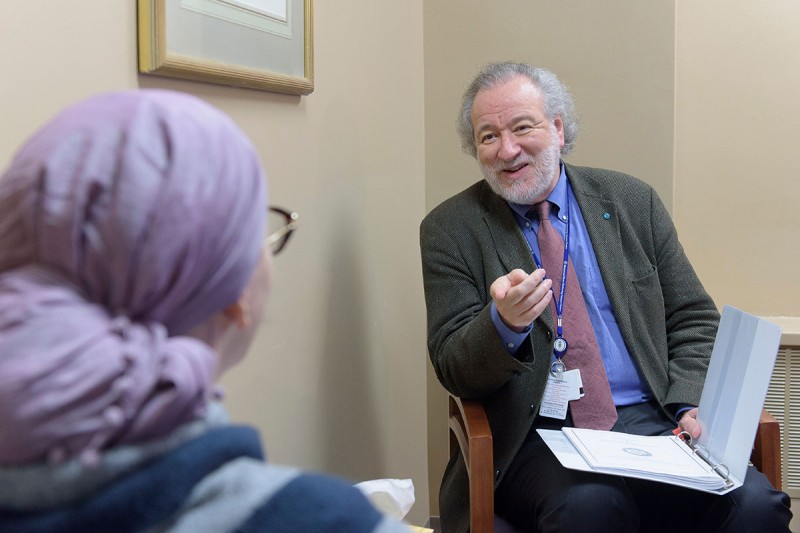
Psychiatrist William Breitbart counseling a person with cancer.
The language of engaging in a “battle” with or “fighting” cancer is ubiquitous in our culture. This language can be helpful for some, and even inspiring as a call to rally resources and support to deal with the illness.
But the problem with using the terms “battling” or “fighting” cancer is that it implies that some individual characteristic of a person determines the outcome, rather than the biology of the cancer or the effectiveness of the treatments. Losing a battle with cancer could suggest that perhaps you are at fault — that you didn’t fight hard enough. You lost, and so you are deficient and a loser. It has the potential of blaming the person or causing the person to feel that he or she is responsible for the lack of success of a cancer treatment. Think of the obituaries that refer to someone “losing their brave battle” with cancer.
A better mindset may focus not on the battle but on the bravery. It is in bravery that the truth really resides. Bravery and courage are the key elements of dealing with cancer. I think better terms would be “living with cancer,” “confronting cancer,” or “surviving cancer.”
Surviving cancer implies living with cancer while choosing the attitude of rising above individual concerns and connecting with people and values that transcend the disease. Living with cancer requires the courage to still live, love, and care. Living with and surviving cancer really mean facing cancer with courage.
Some recent encounters with patients whose cancers were very advanced showed me what surviving with courage truly means. They told me their biggest problem wasn’t figuring out how to face death, even though they knew they would die. Instead, they wanted to focus on finding the most meaningful way to live with cancer while they were still alive. To keep loving and staying connected to life and the people they cared about. To keep themselves whole and forgive themselves for just being human. I told them that’s what we’d focus on — living.
Courage does not mean having no fear. Having nothing to fear wouldn’t require courage. Courage means living with an open heart and embracing our human frailty, vulnerability, and mortality. Continuing to live and love. Still having hopes and dreams. Creating and experiencing meaning in our lives, even in the face of cancer and under the threat of death. Courage also is required to accept our fate and our mortality.
There are no winners or losers. There are just human beings facing life and death with the hope to preserve courage, meaning, and purpose.






